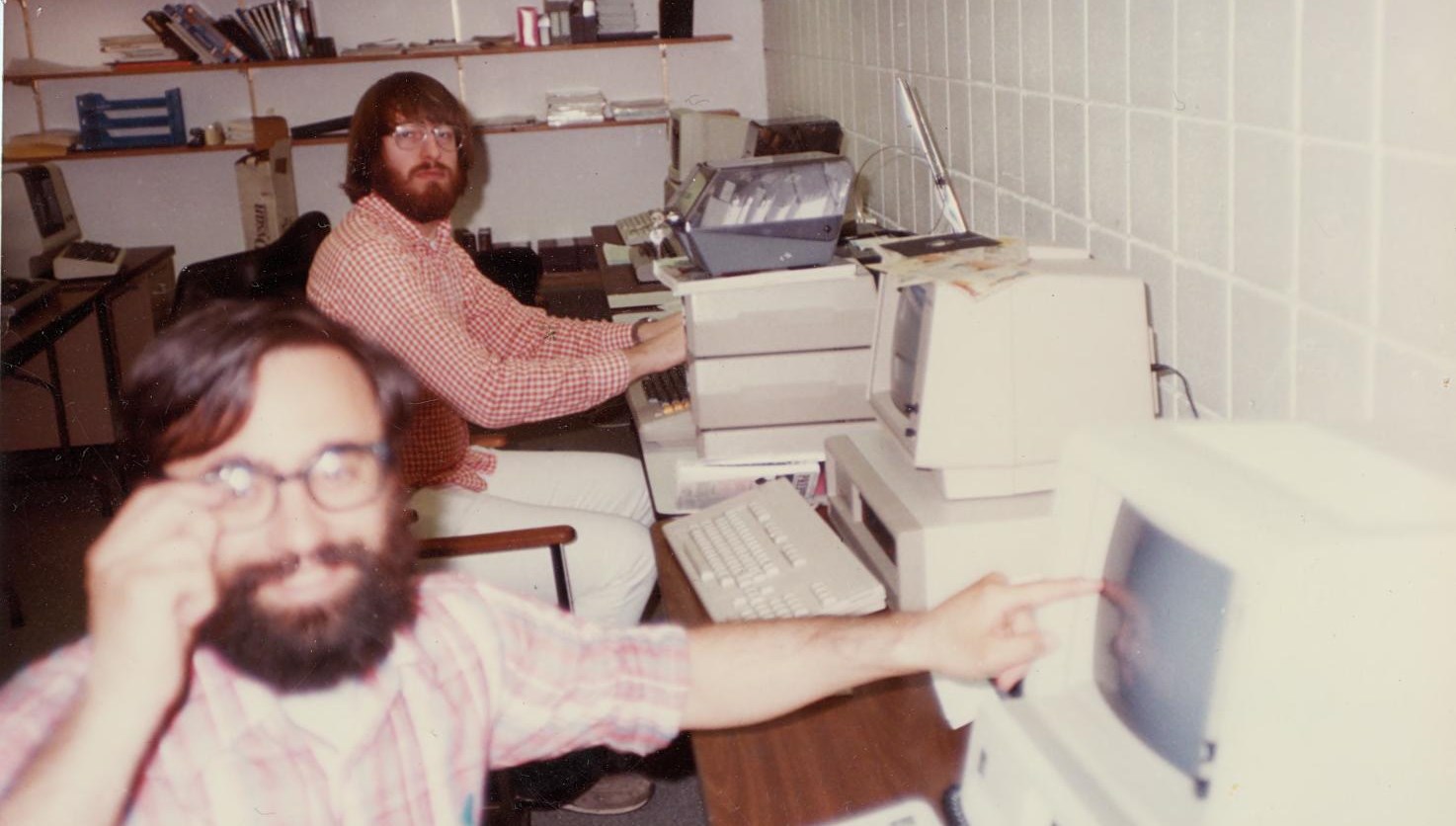A huge chunk of Infocom history is now on the Internet Archive

Steve Meretzky is a famed game developer, a central figure at the seminal interactive fiction studio Infocom, and, as it turns out, a near-obsessive archivist. That last bit was discovered by Jason Scott as he worked on Get Lamp, a 2010 documentary on the history of interactive fiction: Meretzky shared his collection of material from the Infocom days with Scott, allowing him to scan much of it for use in the film.
"This took a long time. I scanned as much as I could, and after working on Steve’s 'design binders,' which are very large combinations of every scrap of paper related to a game, I took a run at the file cabinet, which had pretty much every major communicated aspect of the Infocom company, from memorandums and business process through to interoffice softball game preparations and crab race outcomes," Scott wrote on his blog at Textfiles.com. "I definitely didn’t get everything, but I got a whole lot. Something on the order of roughly 9,000 scanned items, in fact."
Today, Scott released the first batch of those scanned materials to the Internet Archive. Called "The Infocom Cabinet," it includes every notebook and binder Meretzky kept during the "classic Infocom" era, for games including Planetfall, Sorcerer, The Hitchhiker's Guide to the Galaxy, A Mind Forever Voyaging, Leather Goddesses of Phobos, Stationfall, and Zork Zero: The Revenge of Megaboz.
There are photos, design documents, printed mails, phone lists, advertisements, and more: One of my favorites (bearing in mind that I've only glanced through a small portion of the whole) is a piece of correspondence from "Hollywood" Dave Anderson, the writer of Hollywood Hijinx, in which he weighs in on ideas for Meretzky's next project and also offers some advice on collaborating with other developers. "You're your own collaborator babe, and don't let them tell you any different," he wrote. "You've paid your collaborating dues. If they can't dig that them tell 'em to fuck themselves and walk. We're always looking for talent here on the coast."
It's glorious stuff, and a staggering amount of information, but it's also just the start: Scott described it as "the first set of what I hope will be the vast majority of the stuff I scanned during that production year." It's undoubtedly true that this is "priceless work" for people involved in game design, as he put it, but it's also pure gold for anyone with an interest in the interactive fiction genre, or a broader history of videogames.
"There’s so much more not up right now, but this 4,000 page cache should give you something pretty extensive to chew on," he wrote. "I also can’t promise when the ‘next wave’ will come, as it really will be time consuming to go through compared to the relatively light (personal-information-wise) design binders. But it will!"
Keep up to date with the most important stories and the best deals, as picked by the PC Gamer team.

Andy has been gaming on PCs from the very beginning, starting as a youngster with text adventures and primitive action games on a cassette-based TRS80. From there he graduated to the glory days of Sierra Online adventures and Microprose sims, ran a local BBS, learned how to build PCs, and developed a longstanding love of RPGs, immersive sims, and shooters. He began writing videogame news in 2007 for The Escapist and somehow managed to avoid getting fired until 2014, when he joined the storied ranks of PC Gamer. He covers all aspects of the industry, from new game announcements and patch notes to legal disputes, Twitch beefs, esports, and Henry Cavill. Lots of Henry Cavill.

